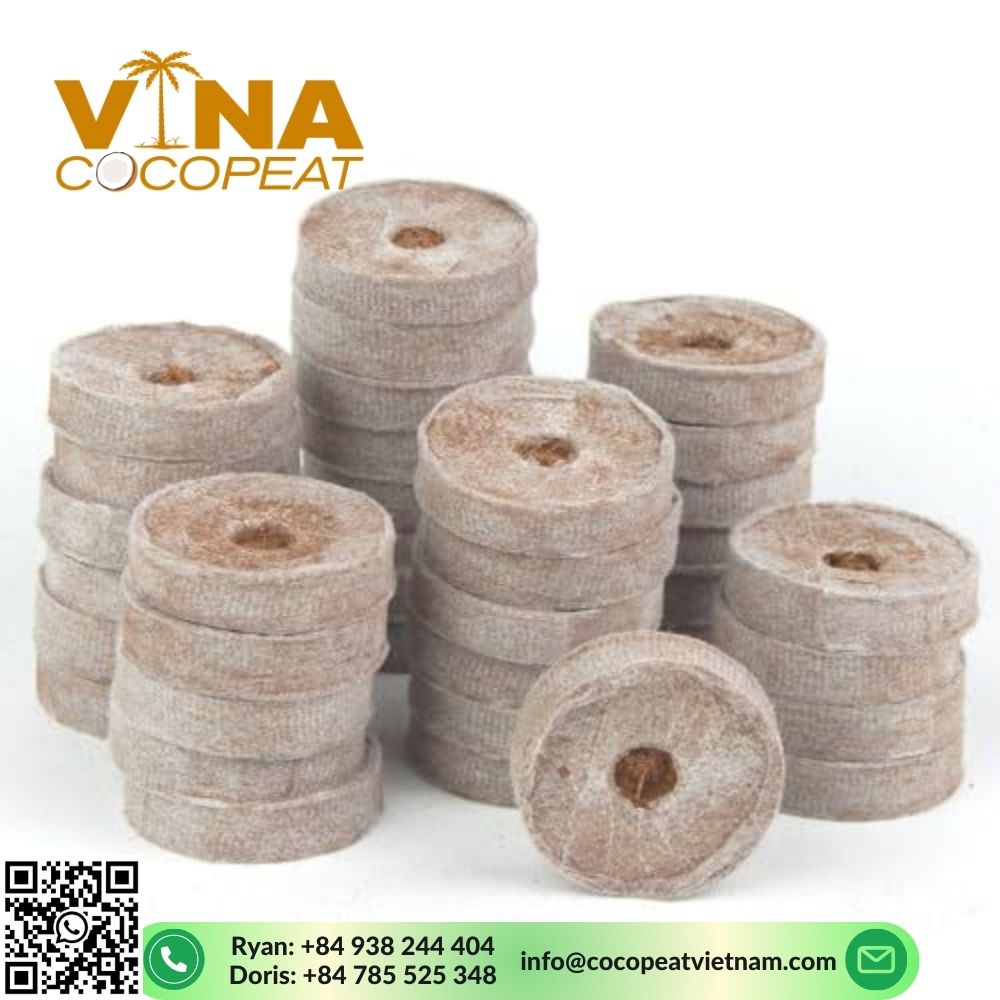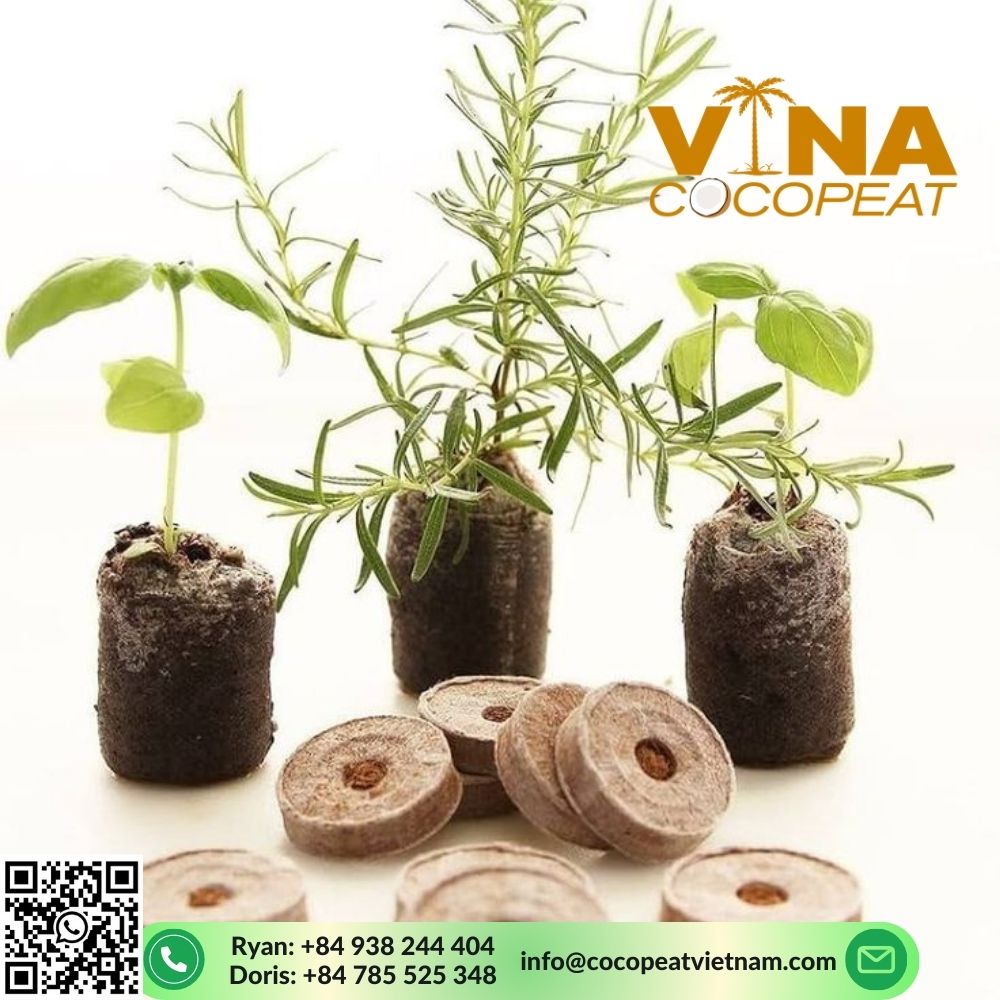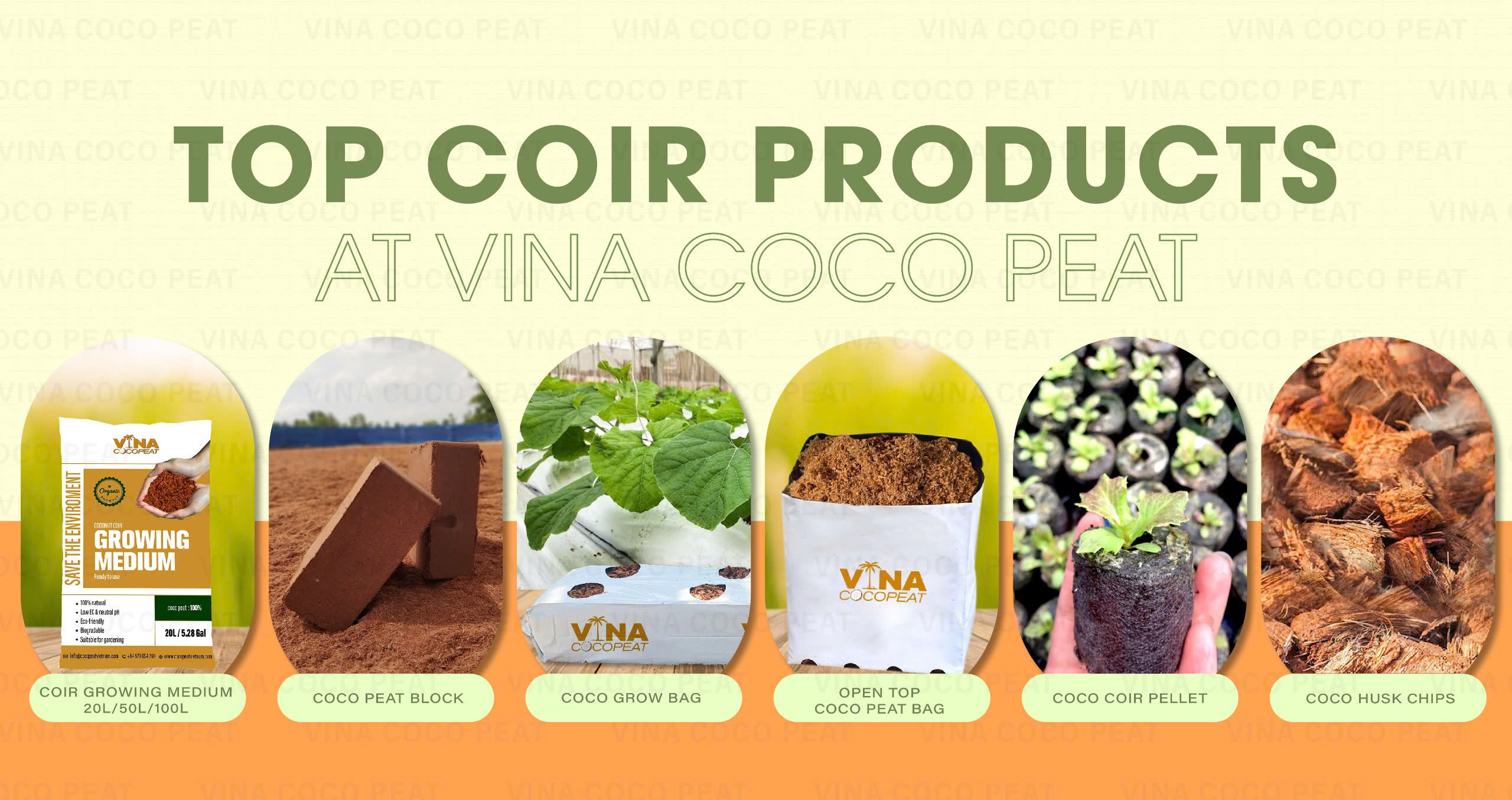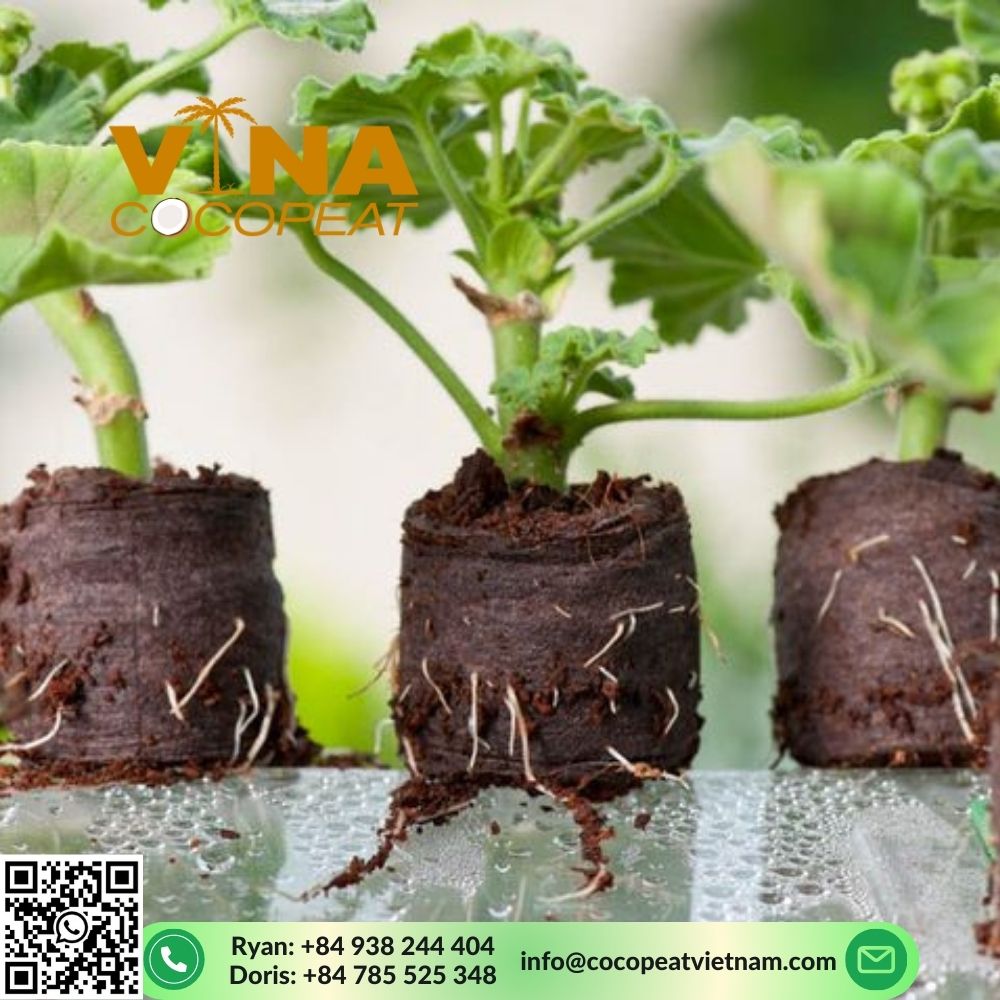In the realm of sustainable agriculture and gardening, the invention of compressed nutritious soil blocks has transformed planting techniques, particularly in the early phases. These compact and nutrient-dense media, which are frequently produced from coconut coir, provide an effective, environmentally beneficial, and practical alternative for seed germination and multiplication. As the worldwide awareness of environmental sustainability rises, these goods are becoming indispensable companions for gardeners, horticulturists, and commercial farmers alike.
Characteristics and Advantages of Coconut Coir Pellet
Coconut coir pellets are manufactured from coconut husk fibers, a sustainable byproduct of the coconut industry. These pellets are crushed into tiny, lightweight discs or blocks that expand greatly when wet. This revolutionary design offers various advantages.

- Water retention and aeration: Coir has excellent water retention properties, ensuring that seeds and seedlings are constantly hydrated without becoming waterlogged. Simultaneously, its porous structure facilitates optimal ventilation and root growth.
- Nutritional Enrichment: Many coir pellets come pre-infused with important nutrients, making them perfect for seed germination and growth. This reduces the requirement for fertilizer during the initial phases.
- Neutral pH levels: Coir naturally has a neutral to slightly acidic pH, making it excellent for a wide range of plants. This characteristic promotes adequate nutrition absorption.
- Easy to Use: The pellets’ tiny size makes them easy to store and carry. When moistened, they expand into a ready-to-use growth medium, making the planting procedure easier.
Applications of Coconut Coir Pellet
Because of their versatility and sustainability, coconut coir pellets have been used in a wide range of sectors. Here are some particular examples:

- Hydroponic cultivation: Coir pellets are commonly used in hydroponic systems as a growth substrate. Their superior water retention and aeration capabilities make them suitable for growing plants in soilless conditions, resulting in optimum growth and nutrient uptake.
- Enormous scale nurseries: In commercial nurseries, coir pellets are a quick and effective way to germinate seeds and propagate plants. Their small size and nutrient-rich content simplify processes, minimizing the need for extra inputs.
- Urban Gardening: Coir pellets are popular among urban gardeners who cultivate plants in small places. Their lightweight and user-friendly design makes them ideal for balcony gardening, vertical farming, and container planting.
- Organic farming: As organic farming grows popularity, coir pellets are being utilized to cultivate organic crops more frequently. Their natural and chemical-free features are consistent with the ideals of organic agriculture, promoting sustainable agricultural techniques.
- Horticulture and Landscape: Coir pellets are used in horticulture and landscaping to grow beautiful plants and trees. Their capacity to retain moisture and offer a steady growth environment ensures that plants develop properly.
Environmental Impact and Sustainability of Coconut Coir Pellet
The use of coir as a major material emphasizes the environmental friendliness of these compressed dirt blocks. Unlike peat, which is frequently taken from delicate habitats and has a severe environmental impact, coir is a sustainable alternative. It repurposes what would otherwise be agricultural trash, lowering landfill contributions and encouraging the adoption of the circular economy. Furthermore, coir pellets reduce dependency on renewable energy sources, making them a more environmentally friendly option for gardeners and farmers alike.
Market trends of Coconut Coir Pellet

Global demand for coir-based goods is continuously increasing, driven by a growing emphasis on environmentally friendly gardening and agriculture techniques. Coir pellets are rapidly being recognized for their flexibility and environmental benefits, with uses ranging from amateur gardeners to major farming operations. Regions with strong coconut industries, such as South Asia and Southeast Asia, are benefiting on this trend by exporting coir goods to fulfill global demand. With the growing popularity of organic farming and home gardening, the market for coir-based solutions is expected to develop significantly in the coming years.
VINA COCO PEAT – THE MULTIPLE COCO PEAT PRODUCTS
VINA COCO PEAT could be a strong supplier choice for high-quality coco peat slabs, especially tailored for strawberry cultivation. VINA COCO PEAT would likely offer a range of coco peat products, including options like coco peat and husk chip mix slabs, to meet the specific needs of growers.

If you are looking for detailed information about our product specifications, pricing, or how they support strawberry cultivation, please contact us to know more details.
Ms. Doris: +84 785 525 348 (ZALO, WHATSAPP, WECHAT, LINE)
Mr. Ryan: +84 961 071 137 (ZALO, WHATSAPP, WECHAT)
한국 영업 담당자: +84 969 273 598 (Ms. Lan)
中文: +84 397 317 401 (Ms. Vi)
Email: info@cocopeatvietnam.com – www.cocopeatvietnam.com

